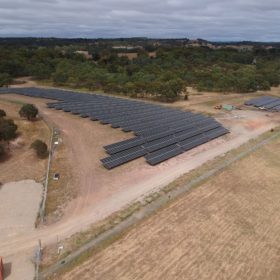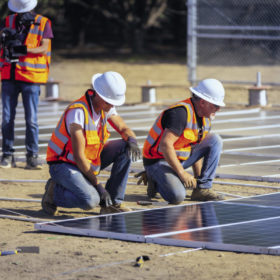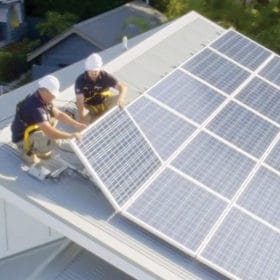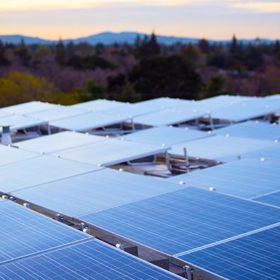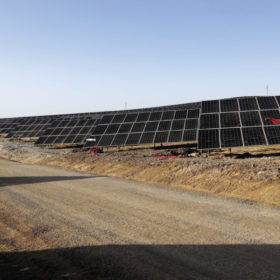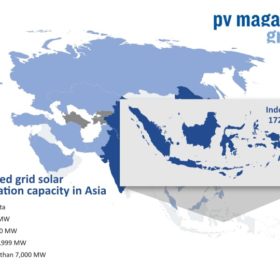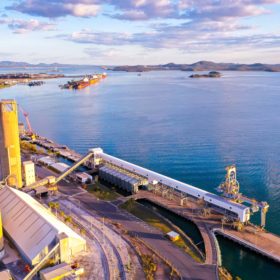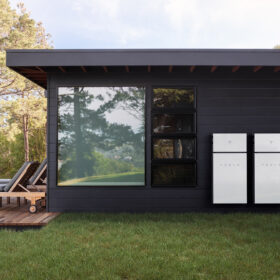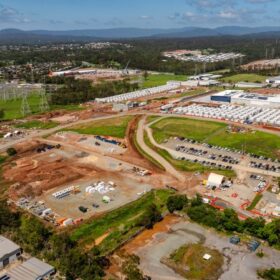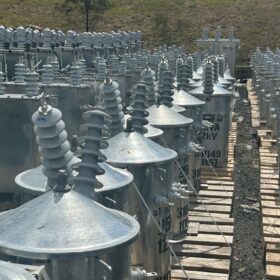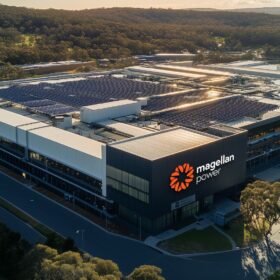Solar energy on tap for SA water
Power and water are a classic utility couple. SA Water has switched up the relationship with another solar plant energised in its massive solar rollout that is set to save on both costs and carbon.
Sunday read: Bringing costs down to earth
Rising efficiencies and the plummeting cost of solar modules over the past few years, recent months notwithstanding, are leading innovators toward ideas that may look unusual in the current tracker-dominated world of large-scale solar parks. Advocates of the new approaches argue that they leave traditional models looking decidedly flat by comparison.
Regulator recommends changes for Australia’s rooftop solar sector
The Clean Energy Regulator has recommended major reforms for Australia’s rooftop solar PV industry, including that it be solely responsible for the enforcement of regulations in relation to accredited installers, retailers and component manufacturers.
Price increases hit US solar
Price increases, supply chain disruptions, and a series of trade risks are threatening the U.S.’s ability to decarbonise the grid, warned SEIA president and CEO Abigail Ross Hopper.
Blockchain-tech launches to help corporates transition to renewables without greenwashing
Global software as a service (SaaS) company, WePower, has today launched its new ‘Incite’ solution, allowing businesses to track and certify their operation’s sustainability through blockchain-enabled technology, ultimately combatting greenwashing. Australia is first cab off the rank for the Lithuanian-headquartered company’s new product suite.
Hydrogen fuel-cell trucks to be used in zinc giant’s Queensland operations from 2022
Global hydrogen vehicle maker Hyzon Motors Inc. has confirmed five of its ultra-heavy-duty hydrogen trucks will be used by Korea Zinc’s subsidiary Ark Energy in its Queensland operations from as early as next year.
Australia branded a laggard as new report reveals China holds key to cancelling global coal projects
With pressure mounting on the world’s governments to turn their back on the fossil fuel, China and peers in South East Asia, Europe and South Asia could help deliver a coal-free future at the COP26 climate summit planned in Glasgow in November.
Hanwha Q Cells unveils plan to produce perovskite, TOPCon solar modules
The US$1.28 billion (AU$1.7 billion) plan includes a 3.1 GW production capacity expansion in South Korea, where the company’s solar module capacity will reach 7.6 GW by 2025.
Regional strategy to turbocharge Indonesian solar
A roadmap to rapid carbon emission reduction has suggested the nation add 2.4 GW of generation capacity next year as part of a 15 GW new-solar target this decade. The claims of solar-plus-storage should be ignored for now, according to a new policy document, because batteries will make PV less competitive with coal.
Moah and Moah hybrid energy projects from Energy Estate
A couple of years ago Central Queensland, at the heart of coal country and the nexus of manufacturing opportunity, became a beacon to energy advisory firm Energy Estate and international renewables developer RES. Moah Creek Renewable Energy Project, the first stage of their gigawatt-scale firmed renewable energy project is about to be introduced to the community.
